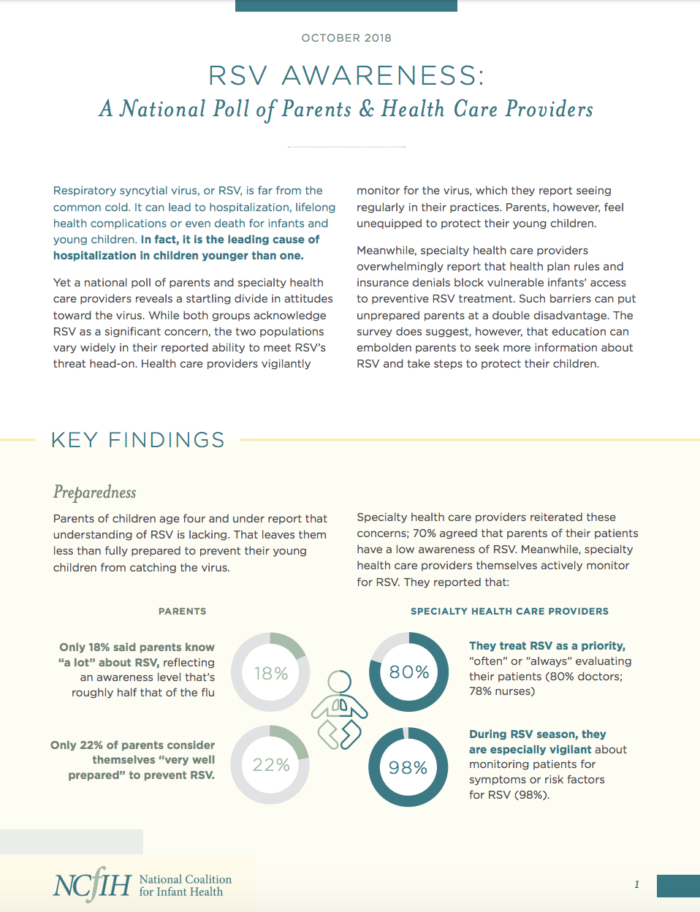Parents of young children lack knowledge about a potentially deadly seasonal virus, a new survey from the National Coalition for Infant Health reveals.
Respiratory syncytial virus, or RSV, is the leading cause of hospitalization in children under 1 year old. It affects the lungs and respiratory tract and can cause lifelong complications – or death. Yet:
- Only 22 percent of parents consider themselves “very well prepared” to protect their child
- Only 18 percent of parents say they know “a lot” about the disease.
Specialty health care providers, on the other hand, affirmed the significant risk RSV poses to children and babies. They were nearly unanimous in agreeing that RSV is the “most serious and dangerous” illness for premature babies (96 percent). And 77 percent indicated RSV is the “most serious and dangerous” illness for children 4 and under.
Survey respondents included 175 specialty health care providers and 600 parents of children 4 and under.
Despite the gap in awareness, the survey suggests that education can spur parents to learn more and become better equipped to protect their children. After hearing statistics about RSV and its impact, parents indicated they were more likely to:
- Ask their doctor about RSV (67 percent)
- Look online for information about RSV (38 percent).
In addition, an overwhelming majority (83 percent) would “probably” or “definitely” take a preventive vaccine if it were available when they were pregnant.
Having more information about RSV can be critical for parents, who may need to fight for their children’s access to preventive treatment. Specialty health care providers agreed that “barriers to access and denials from insurance companies limit patients’ ability to get preventive RSV treatment” (77 percent).
The release of the survey results coincides with national RSV Awareness Month.
One tool for increasing awareness may be the Institute for Patient Access’ new “Myths, Facts & Respiratory Syncytial Virus.” The document dispels common myths about RSV. For example, RSV can be dangerous for infants and young children, but seniors can also suffer serious health consequences from the virus. And even though early symptoms of RSV are sometimes mistaken for the common cold, RSV can be much more dangerous. RSV can be deadly and may require hospitalization if symptoms become severe.
For most of the country, RSV season has already begun. Learning the facts this RSV Awareness Month can help adults protect children and seniors throughout the season, which can extend through mid-May depending upon geography.
To learn more, read “RSV Awareness: A National Poll of Parents & Health Care Providers” and “Myths, Facts & Respiratory Syncytial Virus.”


